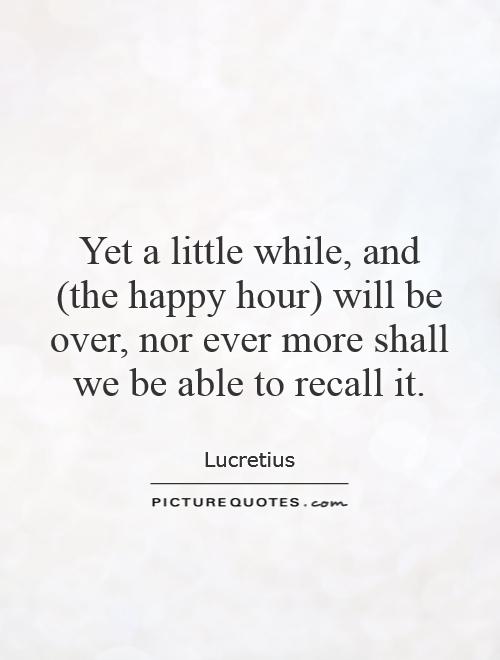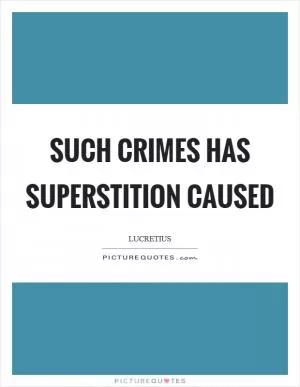Yet a little while, and (the happy hour) will be over, nor ever more shall we be able to recall it

Yet a little while, and (the happy hour) will be over, nor ever more shall we be able to recall it
In the context of Lucretius, the quote "Yet a little while, and (the happy hour) will be over, nor ever more shall we be able to recall it" holds a profound and poignant meaning. Lucretius, a Roman poet and philosopher, is best known for his epic poem "De Rerum Natura" (On the Nature of Things), in which he expounds upon his philosophical beliefs and views on the nature of the universe, life, and death.The quote speaks to the fleeting nature of happiness and the impermanence of all things in life. Lucretius believed that everything in the world is made up of atoms and that these atoms are constantly in motion, forming and dissolving in an eternal cycle of creation and destruction. In this worldview, happiness, like everything else, is transient and ephemeral. It is a fleeting moment that will soon pass, never to be recaptured or relived.
For Lucretius, the impermanence of happiness is not a cause for despair, but rather a reminder to appreciate and savor the present moment. He believed that true happiness comes from living in harmony with nature and accepting the inevitability of change and impermanence. By embracing the transience of happiness, one can find peace and contentment in the midst of life's uncertainties and challenges.
The quote also serves as a reminder of the fragility of human existence and the inevitability of death. In the grand scheme of the universe, our lives are but a brief moment in time, a fleeting spark in the vast expanse of eternity. Like the happy hour that will soon be over, our lives too will come to an end, and we will no longer be able to recall or relive the moments of joy and happiness that we experienced.












 Friendship Quotes
Friendship Quotes Love Quotes
Love Quotes Life Quotes
Life Quotes Funny Quotes
Funny Quotes Motivational Quotes
Motivational Quotes Inspirational Quotes
Inspirational Quotes